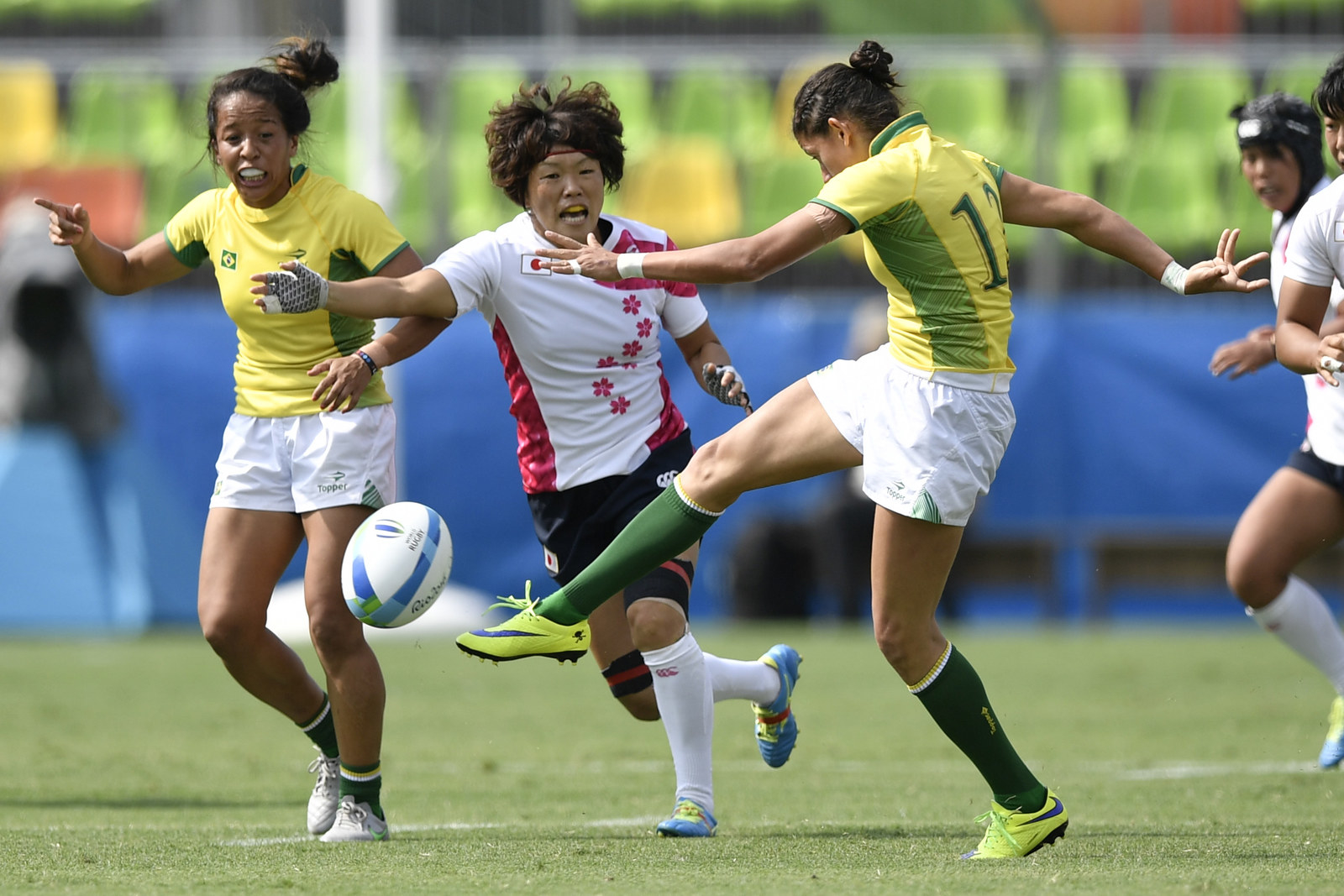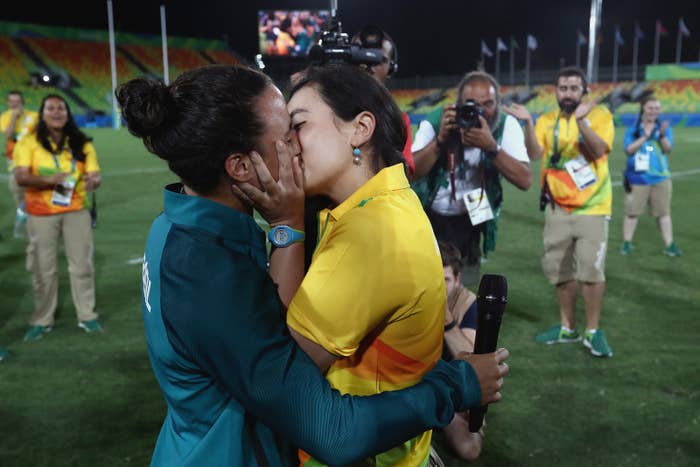
Izzy Cerullo was very excited to participate in her first Olympics in women's rugby, but she never expected how much she would experience off the field — including a marriage proposal.
In an interview with BuzzFeed Brazil last week, we learned how number 11 on the Brazilian team felt about her girlfriend, Marjorie Enya, publicly popping the question.
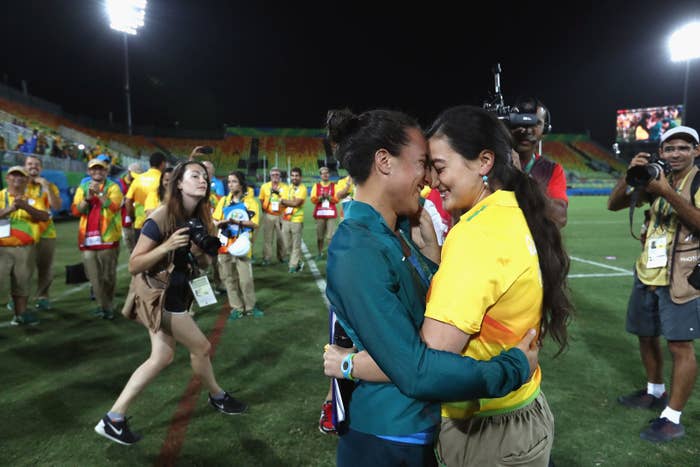
What did it mean to you for your girlfriend to choose to publicly propose?
Izzy Cerullo: It meant everything. The Olympic spirit has everything to do with diversity and respect. Even the Olympic slogan is "a new world." So, really, it was to show that the world is changing and that there's more visibility and tolerance, more respect and diversity. And it also shows how we don't have to hide, and that we can be who we really are.
Of course you're always faced with negative feedback from the people who are looking for attention. But in reality, [the proposal] wouldn't have gotten that much attention if it had been a straight proposal. At the heart of it, it takes more visibility for there to be more acceptance. It's not something all that out of the ordinary, and it just goes to show that love is love — and that's what makes it noteworthy.
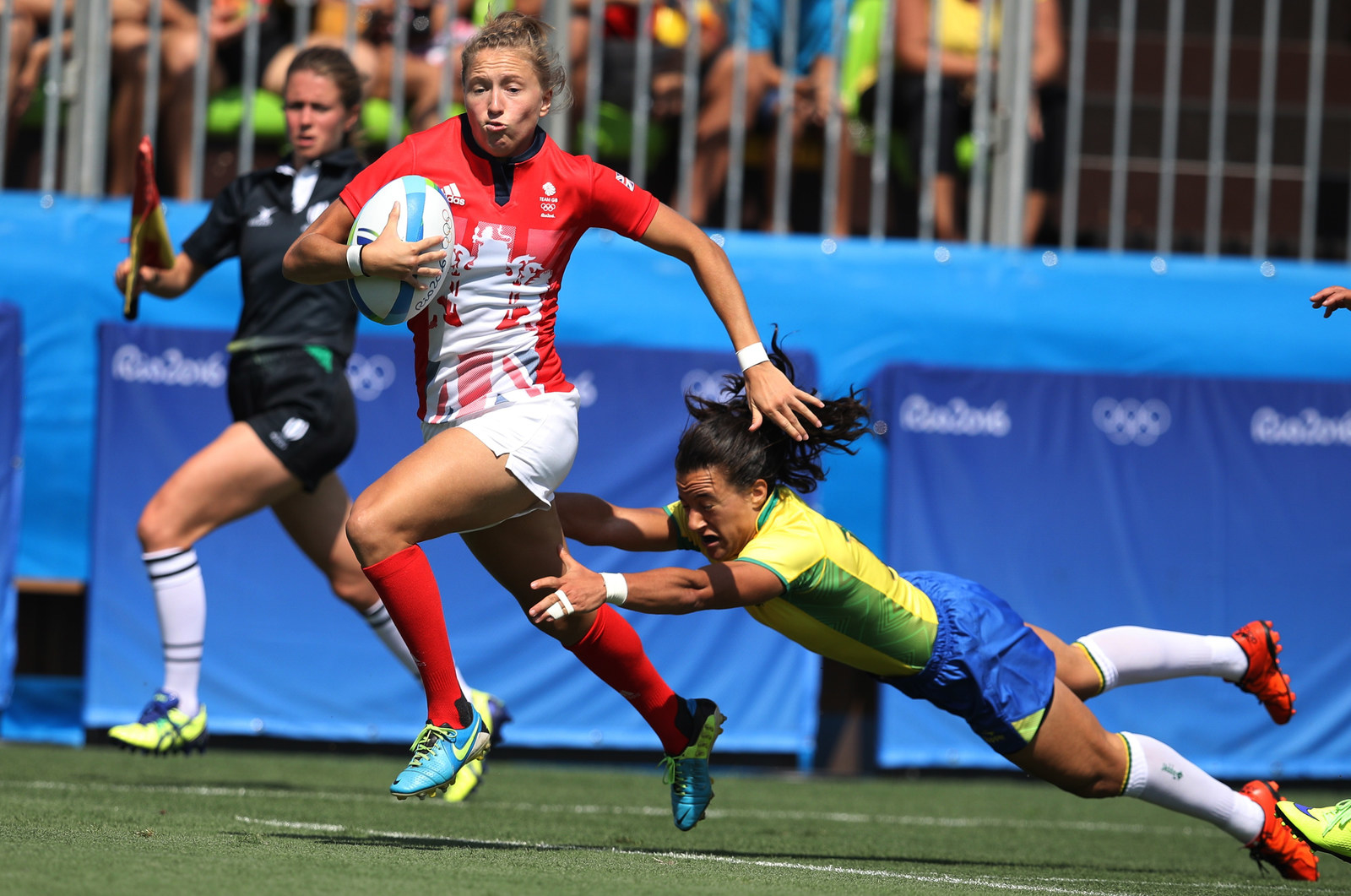
There are only 43 out gay Olympians in this year's games. Do you think that sports are becoming more tolerant, or do you think that the jury's still out?
IC: It's still early, because just in the first week of the games a number of athletes in my own league and in the international federation have stayed silent, keeping gay athletes invisible. There's still this fear that you'll lose sponsorships if you admit to being gay. It's ridiculous — an athlete has to face off with so many pressures and all the things that can distract him or her from the sport or their performance.
Have you faced prejudice within your own sport?
IC: No. I've found that rugby is unique in that it's value-based. There are five main rugby values, and respect is one of them. Therefore, since it's a sport based so much in its values, it would be nearly impossible to be faced with discrimination. One of the best international rugby referees [Nigel Owens] has come out. It's incredible: He's the GREATEST of all rugby referees. And there are a number of athletes that are openly gay and are embraced by their clubs — some people hardly even remember when you'd hear something along the lines of "I'm not trying to be prejudiced, but..." And it shows that acceptance is truly alive within the sport of rugby. I've always felt very accepted.
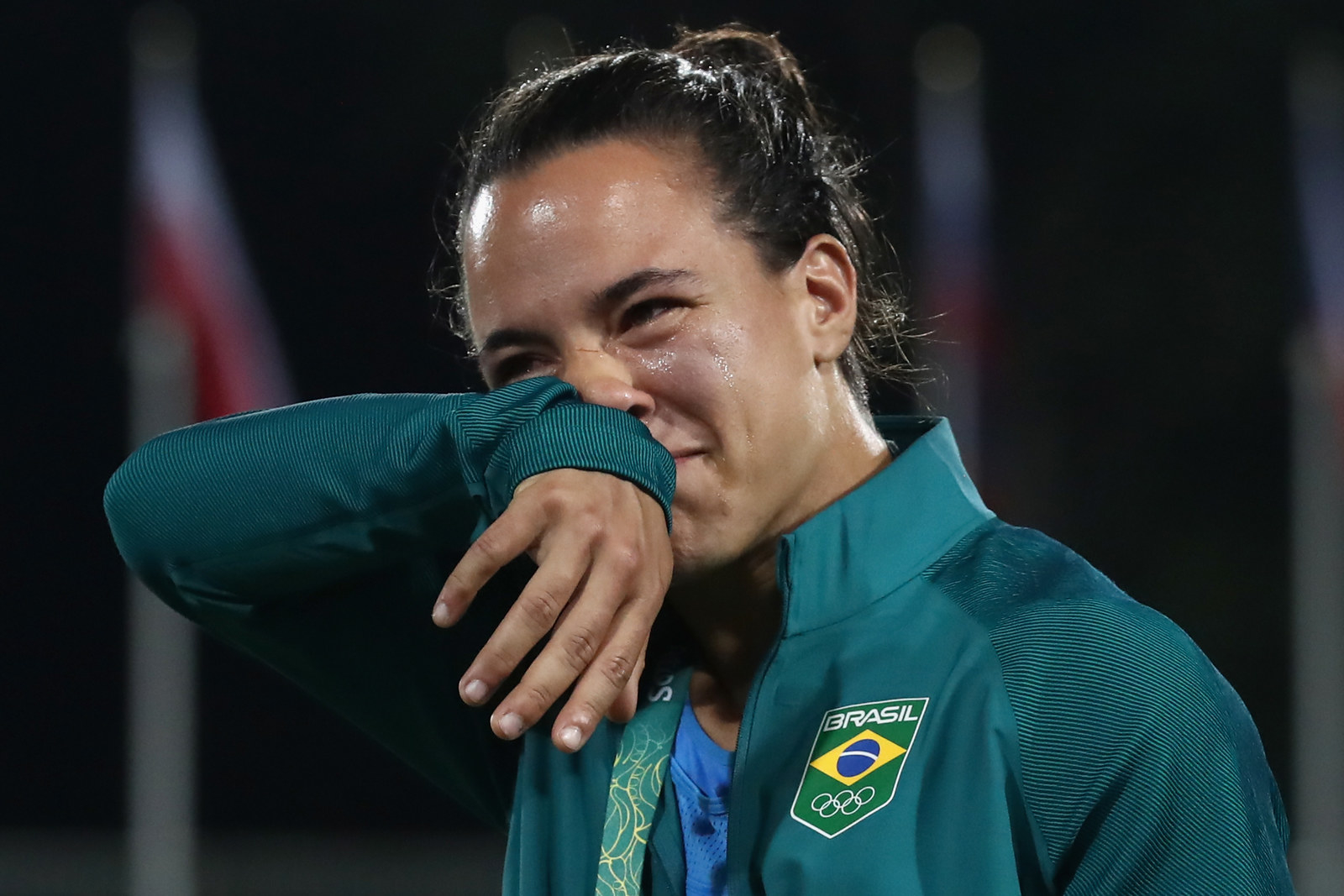
How did you and Marjorie get together?
IC: She was a selection manager. From the start, people thought that we had a lot in common, and that our priorities were aligned and that our worldviews were similar. We started to take it a little further and we discovered that we truly were both interested in pursuing a relationship. That was 2014.
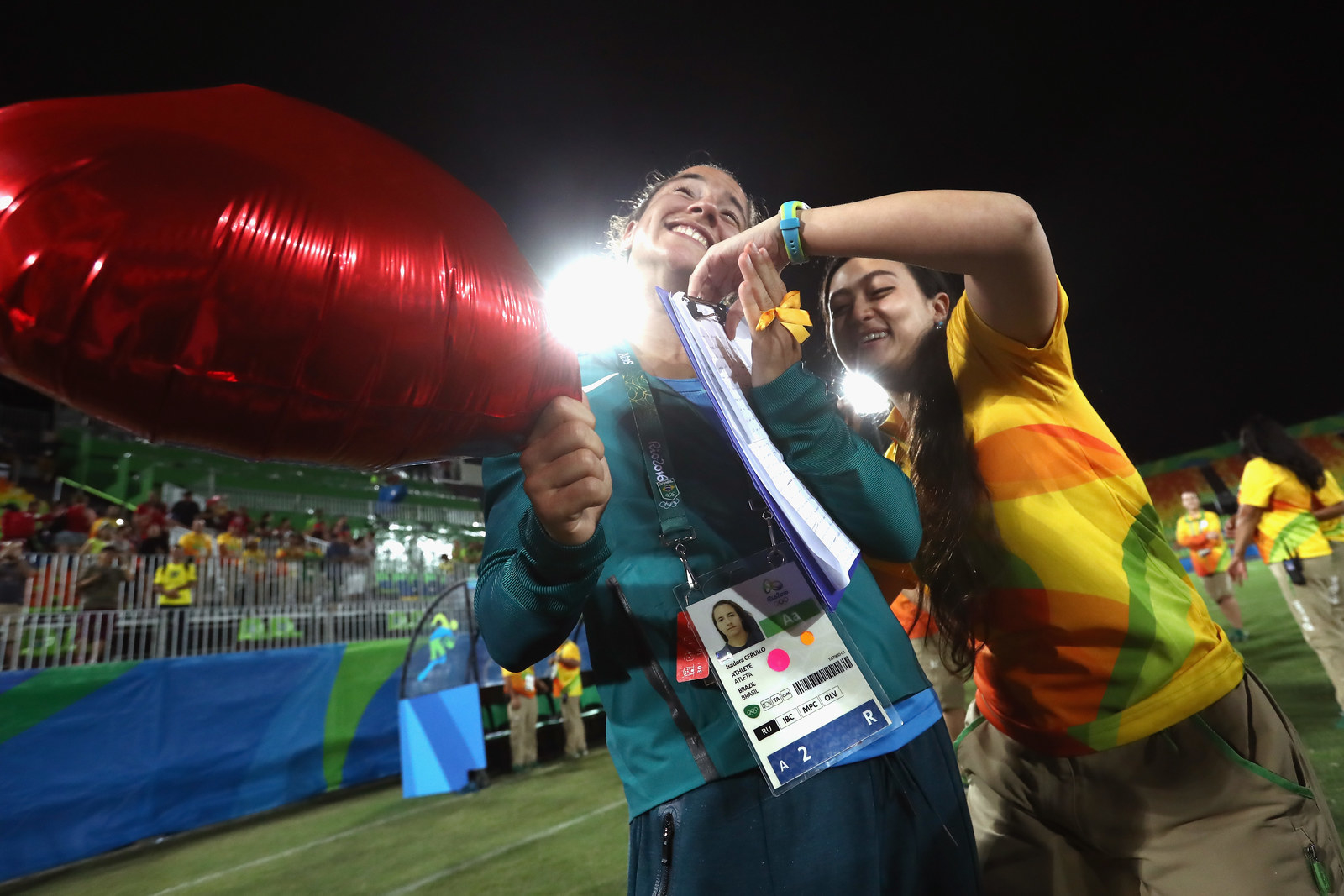
Apart from being an Olympic rugby star, you've competed in a number of countries around the world, including some that are known for being not so receptive to gay people. Did you notice a difference between the Rio Olympics and other competitions?
IC: We went through a World competition in Dubai in the United Arab Emirates. It was a lot more of a conservative culture, the country overall was more conservative, but rugby was safe from that. Within rugby, people don't care.
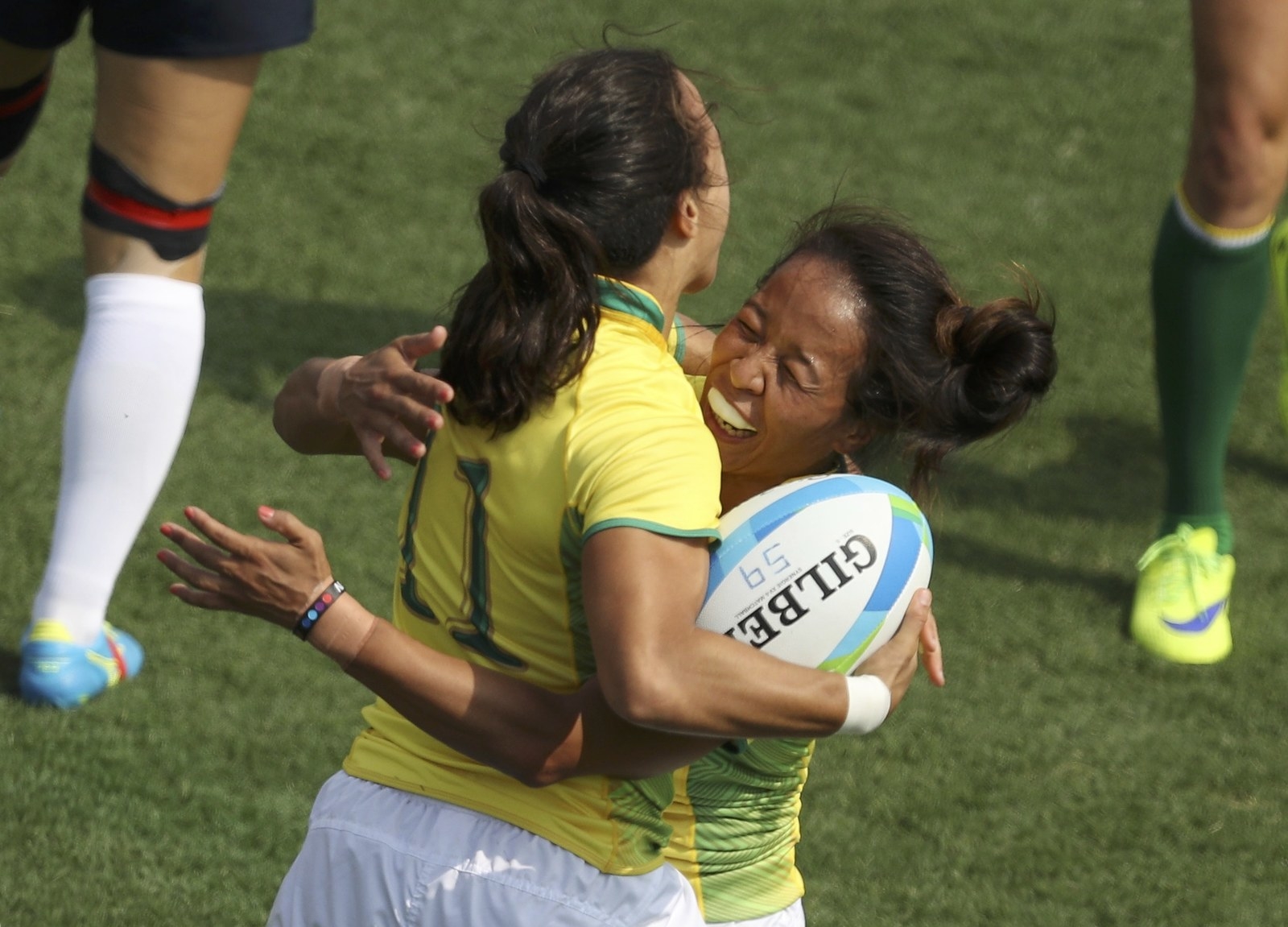
The Brazilian women's rugby team finished in ninth place. What does that mean to you?
IC: Three years ago there was the World Tour, which is a series of six rounds around the world with the 12 best teams in the world. And in those years Brazil was a guest team, so to be the host country of the Olympics we need to have more experience against the best teams in the world. Though this time we showed that we can be among the top 10, and our world ranking is 10th.
In Latin America we are undefeated — we haven't yet lost an official game as a team, and we've been the South American champions 11 times. Really, we've come a long way, and our hope is to only continue this development, because this year we'll have five or six circuit rounds and have the opportunity to continue closing the gap between us and the best.
